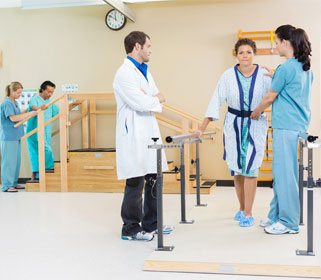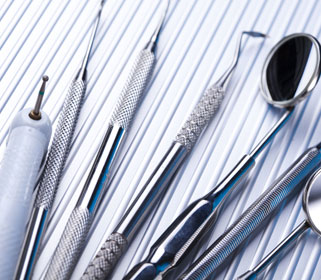Home » Surgical Instruments, Medical Surgical Supplies & Equipment » Choosing the Right Exam Gloves » Choosing the Right Exam Gloves
Choosing the Right Exam Gloves
Having the right supplies on hand is always important in a clinical or hospital setting as well as when caring for patients in a home health environment. This includes everything from medical equipment right through to examination gloves. While it may not appear at first glance that there are a lot of differences in exam gloves, there are some considerations that may make one type of glove better suited to both you and your patients than other.
One of the most important things to consider is the safety requirement for both the patient as well as the health care professional. Examination gloves can be marketed as sterile or non-sterile and it is essential to choose the correct option. Sterile exam gloves are individually packaged, and are designed to ensure a sterile field for operations, treatment of open wounds, or other types of invasive procedures. Non-sterile exam gloves are typically packaged in bulk and are used to provide a barrier between the patient and the health care provider while not providing a sterile contact surface. This is perfect for assisting patients with bathing, minimizing skin to skin contact, and preventing the spread of any types of bacteria or germs.
The type of material that the examination gloves are made of is also something to keep in mind. Latex has long been the favorite and originally on of the most durable materials used in sterile and non-sterile examination gloves. It allows the glove to stretch to fit tightly on the hand, perfect for surgical procedures and other detailed type of work. The one drawback to latex is that many people have a mild to severe skin reaction to contact with latex. In some hospitals and clinical settings, latex gloves are no longer used for this reason. Home health care professionals should only use latex gloves with a patient after there is confirmation that the patient has no allergic reaction to latex. The powder used in latex and other types of gloves can also cause an allergic reaction in some individuals.
A good option for many that don't want to run the risk of using latex exam gloves are nitrile gloves. These are very durable, like latex exam gloves, and not at all prone to ripping or tearing. In addition, the nitrile material is heat activated to cling to your hands, making a good fit in just a few seconds. Besides being very durable, nitrile gloves have a slightly sticky or tacky exterior that is ideal for grasping and holding slippery materials and instruments. This material is not degraded by exposure to oils, grease and most solvents so they can be used in a wide range of applications in medical and non-medical settings.
Vinyl gloves are some of the best gloves for all round use. They are low cost, lightweight, and are naturally anti-static, which may be important in specific medical settings. As vinyl exam gloves are lighter and thinner than either latex or nitrile examination gloves, they are also more likely to tear or rip and therefore should not be used with open wounds or where exposure to body fluids is a concern. Choosing the correct size for these types of examination gloves is important as gloves that are too small are more likely to rip and pull apart.
MSEC remains dedicated to providing the very best and the very latest in medical supplies and equipment. We never cease to be on the lookout for the latest innovation that will benefit both our many clients and the patients they dedicate their lives to caring for. If you have any difficulty finding your choices in our vast inventory, call our customer service at 1-877-706-4480 to speed up your order or to make a special request. We are always happy to help you.













